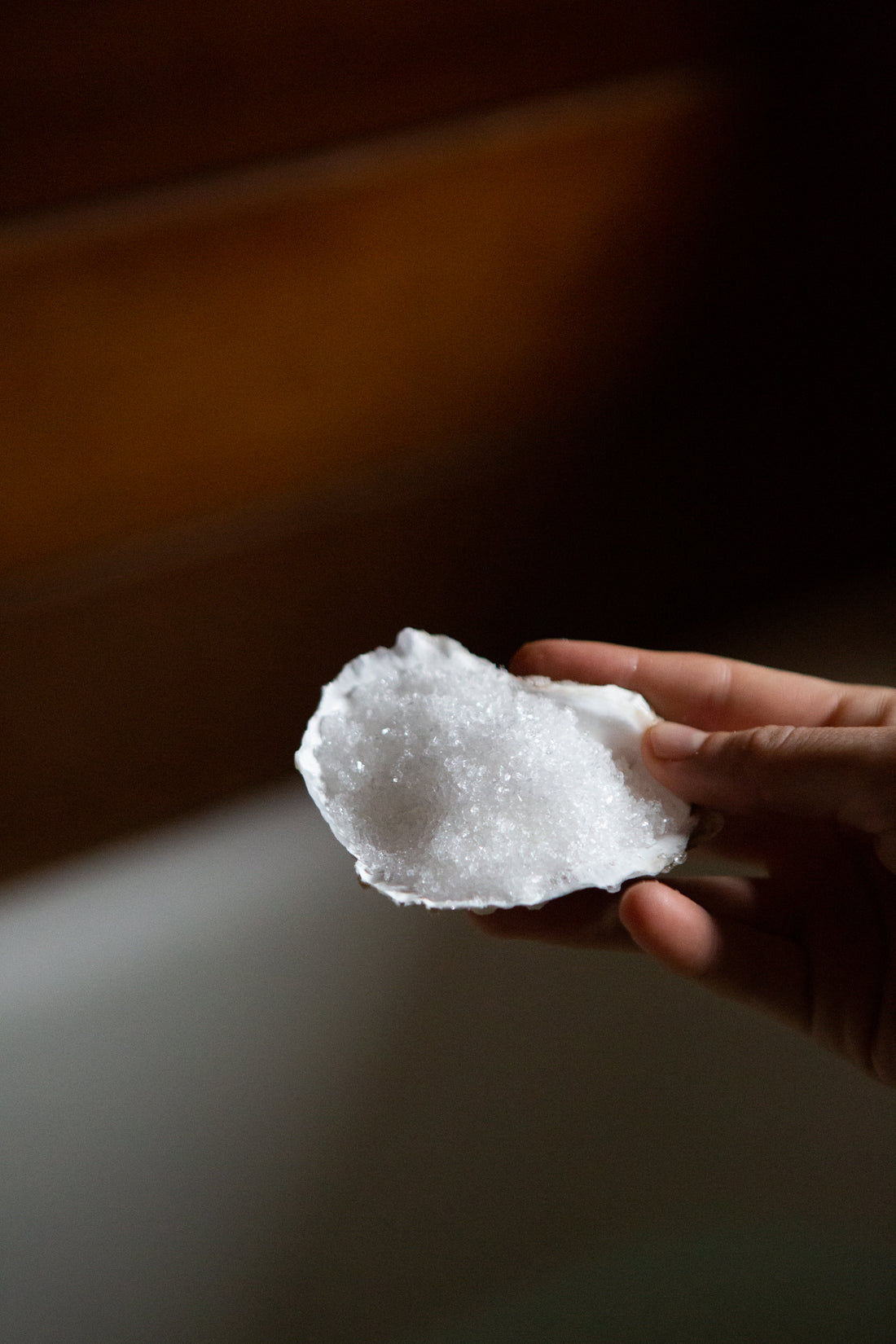Winter, through the lens of Traditional Chinese Medicine, is dominantly yin in nature. Yin is the passive property of the universe. It is inactive, cold, damp, and corresponds with the color black. Winter corresponds with the Water element, which is associated with the kidneys, bladder, and adrenal glands.
The flavor of winter is salt. Quality salts are essential to enliven & harmonize the water element in the body, encouraging yin and fluid balance. Salt is stored in the kidneys, where it’s anchoring nature helps build strength deep within the body.
In Traditional Chinese Medicine the kidneys are the source of all energy in the body. During the winter months it is especially important to nurture the kidneys. It is this time when this energy can be most easily depleted. The cold, dry climes of winter pull moisture from the body, this dehydration can be quite taxing on the kidneys.
Warming foods and plenty of liquids help to nourish you from the inside out. Drink an abundance of fresh water, herbal teas, and/ or broths to keep well hydrated. Foods that are particularly enriching for the kidneys include watercress, radicchio, cabbage, rye, millet, barley, and citrus. Most black foods nourish the kidneys, these would include dark fruits and vegetables, seaweed, and foods like black beans, black sesame seeds, and black walnuts. Ferments, brined, pickled, and sea foods are naturally salty.
Salt water baths also help to balance minerals in the body while nourishing the kidneys. The naturally occurring magnesium in epsom salt is most readily absorbed through the skin. Magnesium allows us to relax, release muscular tension, enter deeper sleep, it boosts the mood, and provides an overall sense of wellbeing. A foot soak can provide the same benefits if you’re without a bathtub. Don’t forget a warming oil massage afterwards to support the nervous system and seal in moisture!

